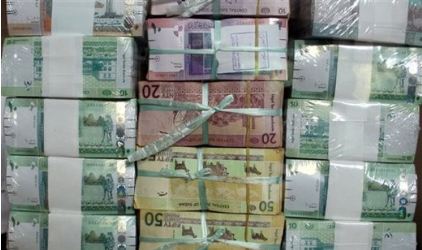Central Banks of Sudan and South Sudan agree on monetary cooperation
March 30, 2013 (KHARTOUM) – Senior officials from the Central Banks of Sudan and South Sudan have concluded a joint meeting on Saturday in Khartoum in which they discussed different aspects of cooperation on several issues.

Khartoum and Juba also reached an understanding on joint debt forgiveness, preserving rights of commercial banks and individuals, cooperation in payment systems for regulations, clearing and settlement, and making use of customs.
Mahmoud however noted that some issues are still under examination by the joint committees such as the monetary policy and exchange rate adding that they agreed on joint utilization of foreign bank correspondents.
The Sudanese official went on to say that a committee comprised of eight members was jointly formed to look at special issues and any other situations that may emerge in the future.
Mahmoud acknowledged that there is a problem with regard to opening branches for Sudan’s central bank in South Sudan since banks in the Sudan use Islamic modes of financing, explaining that they put forward some proposals to the joint committee to open dual windows using separate modes.
South Sudan’s Deputy Governor of Central Bank John Dor Majok on his part said that the joint committees will conduct a systematic study on some issues and that the two banks are working to encourage commercial banks to open accounts for border trade.
The next meeting will take place on April 25, Majok said.
In September of last year, both Sudan and South Sudan signed a series of cooperation agreements, which covered oil , citizenship rights, security issues, banking, border trade among others.
Earlier this month, the two countries signed an implementation matrix for these cooperation agreements.
The most notable provision in the agreement is related to resumption of oil exports by landlocked South Sudan which were suspended more than a year ago because of a dispute over transit fees.
The oil flow is expected to breathe life into the beleaguered economies of the two countries which were heavily dependent on oil remittances to pay for imports of basic commodities.
(ST)

